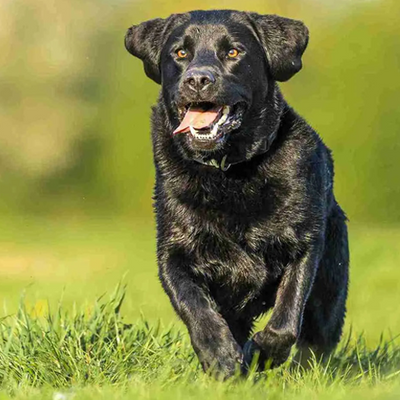The Bernese Mountain Dog Companion Guide
Quick take: Bernese Mountain Dogs are gentle, loyal, and affectionate working dogs known for their striking tri-color coat and calm, family-oriented nature. They thrive in homes that provide steady companionship, joint-conscious care, and regular grooming to support their thick double coat.
Want to explore more breeds? Visit the full hub here: Top 50 Purebred Dog Guide.
1. Introduction to the Breed
The Bernese Mountain Dog is a large working breed originally developed for farm work, cart pulling, and guarding livestock. Today, Berners are best known as affectionate family companions who balance strength with a calm, easygoing temperament. They do best when included in daily life and given space to move comfortably.
2. History of the Breed
Originating in the Swiss Alps, Bernese Mountain Dogs were bred as versatile farm dogs capable of herding cattle and pulling carts over mountainous terrain. Their strength, endurance, and gentle disposition made them indispensable to farmers. The breed gained popularity outside Switzerland in the 20th century and is now cherished worldwide as a loyal companion.
3. Physical Characteristics
Typical Size and Weight
Bernese Mountain Dogs are large dogs. Males typically stand 25–27.5 inches tall and weigh 80–115 pounds, while females are slightly smaller at 23–26 inches and 70–95 pounds. Their size places extra importance on joint support and controlled exercise.
Coat and Color
Berners have a thick, long double coat designed to withstand cold climates. Their signature tri-color pattern includes black with rust and white markings. They shed year-round with heavy seasonal shedding.
Distinctive Features
A broad head, expressive dark eyes, and a plush coat give the Bernese Mountain Dog its warm, friendly appearance.
4. Personality Traits
Bernese Mountain Dogs are gentle, affectionate, and people-focused. They tend to be patient with children and bond closely with their families. While generally calm indoors, they enjoy moderate outdoor activity and benefit from consistent routines.
5. Care Requirements
Exercise Needs
Berners need moderate daily exercise—usually 45–60 minutes of walking, light hiking, or backyard play. High-impact activity should be limited, especially during puppyhood, to protect developing joints.
Grooming Needs
Their thick double coat requires regular brushing to manage shedding and prevent matting. Brushing several times per week—and daily during heavy shedding seasons—helps keep the coat healthy and comfortable.
LibertyPaw Grooming Pick for Bernese Mountain Dogs
A dense double coat benefits from a grooming tool that reaches the undercoat to remove loose hair efficiently. A shedding rake designed for thick coats makes seasonal shedding more manageable and improves overall comfort.
Shop Grooming Tool for Bernese Mountain Dogs
Prefer browsing? Explore the full grooming lineup here: LibertyPaw Pet Grooming Products
Dietary Considerations
A high-quality large-breed diet supports steady growth, muscle maintenance, and joint health. Portion control is important to avoid excess weight, which can stress hips and elbows. Fresh water should always be available.
6. Health and Lifespan
Bernese Mountain Dogs typically live 7–10 years. Common health concerns include hip and elbow dysplasia, certain cancers, and heart conditions. Regular veterinary care and maintaining a healthy body condition are critical.
7. Training and Socialization
Berners are intelligent and eager to please but mature slowly. Training should be gentle, consistent, and positive. Early socialization helps them grow into confident, well-mannered adults.
8. Ideal Home Environment
Bernese Mountain Dogs do best in homes with space to move and a cool environment, as they tolerate cold better than heat. They thrive in households where they receive daily interaction and aren’t left alone for long periods.
9. The Best Dog Bed for a Bernese Mountain Dog
Because of their size and weight, Bernese Mountain Dogs benefit from a bed that offers strong structural support and ample space to stretch out.
A well-cushioned bed helps distribute weight evenly and reduces pressure on joints—especially important for a breed prone to hip and elbow issues.
Durable materials are important to withstand daily use from a large dog.
For senior Berners, orthopedic-style support can significantly improve comfort and mobility.
Find the Right Bed for Your Bernese Mountain Dog
10. What’s the Best Toy for My Bernese Mountain Dog?
Berners enjoy toys that encourage gentle tug, chewing, and interactive play rather than high-intensity games. Toys should be durable and appropriately sized.
LibertyPaw Toy Picks for Bernese Mountain Dogs
Toy Pick #1: LibertyPaw Firefighter Firehose Tug Toy
Built for strength, this durable tug toy supports interactive play and bonding without overstimulation.
Toy Pick #2: LibertyPaw RECON Camo Bone
A durable chew and fetch option that holds up to large jaws while offering safe, satisfying engagement.
Shop This Toy for Bernese Mountain Dogs
Want more USA-made options? Browse the full toy collection: LibertyPaw American-Made Pet Toys
11. Adoption and Breeder Tips
When choosing a Bernese Mountain Dog, work with breeders who prioritize joint health, temperament, and responsible breeding practices. Ask about health testing and lifespan expectations. Bernese rescue organizations are also excellent options for welcoming a gentle giant into your home.
Disclaimer: This breed guide is intended for general informational purposes only and does not replace professional veterinary advice, diagnosis, or treatment. Every dog is unique, and individual needs may vary based on age, health, activity level, and environment. Always consult a licensed veterinarian or qualified canine professional before making changes to your dog’s diet, exercise routine, grooming regimen, or health care.






0 comments